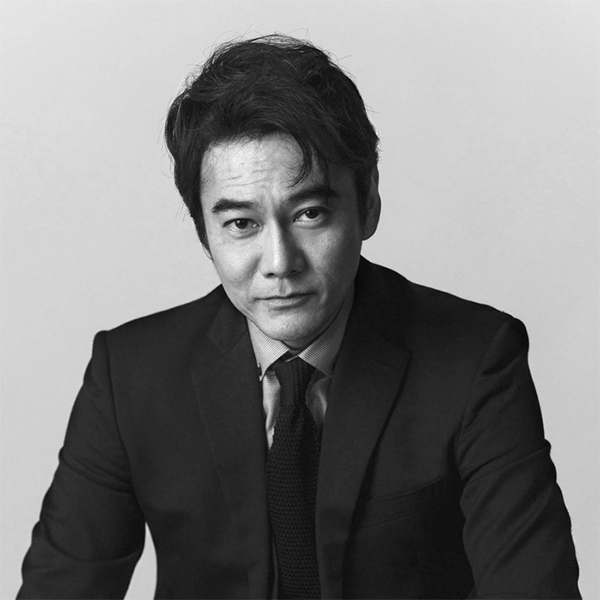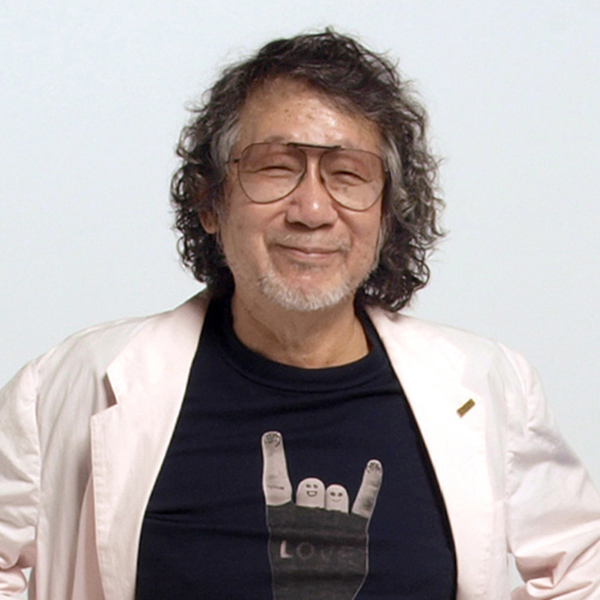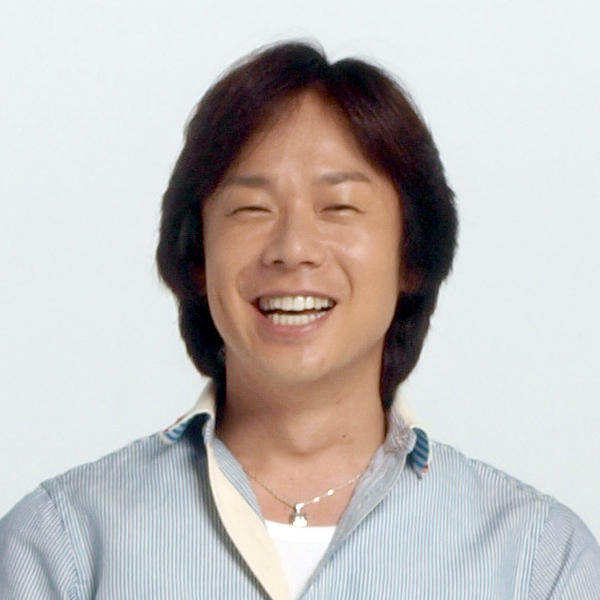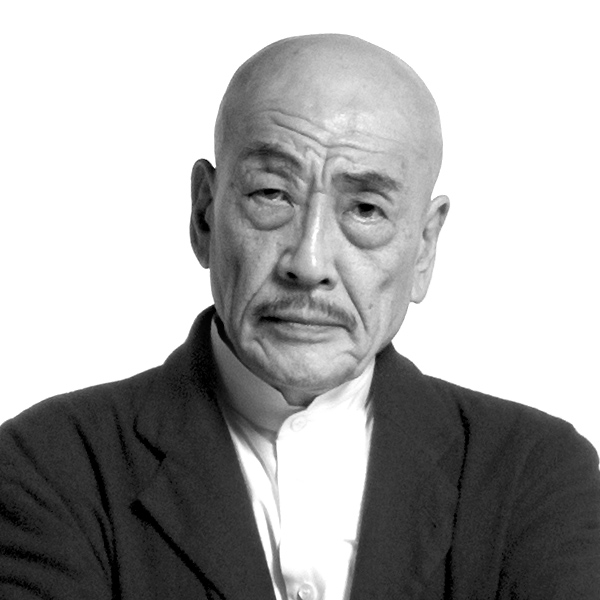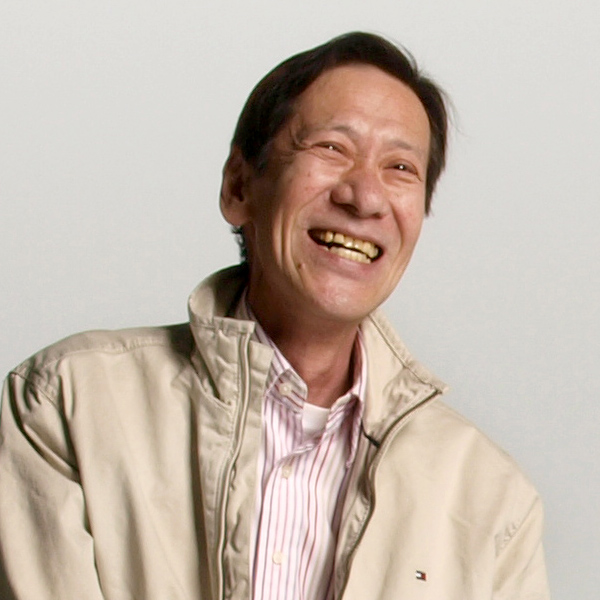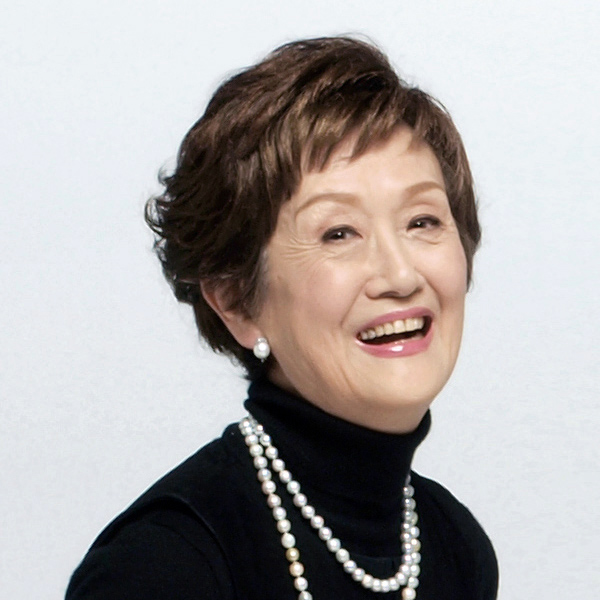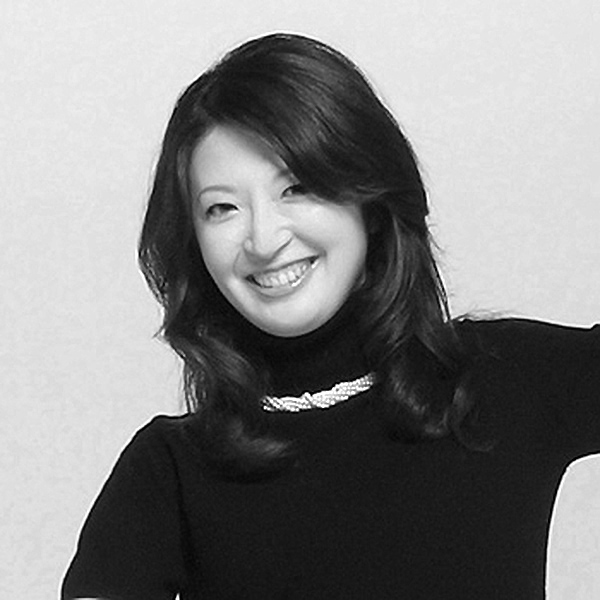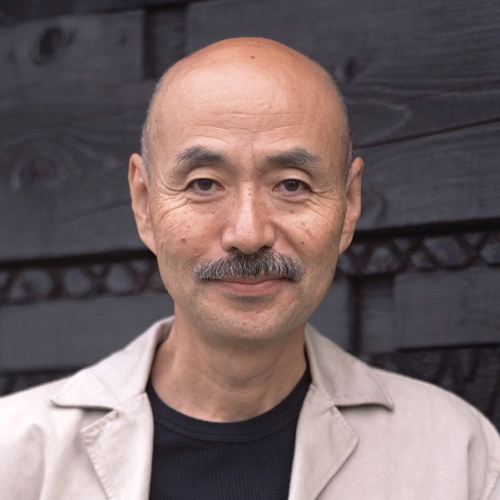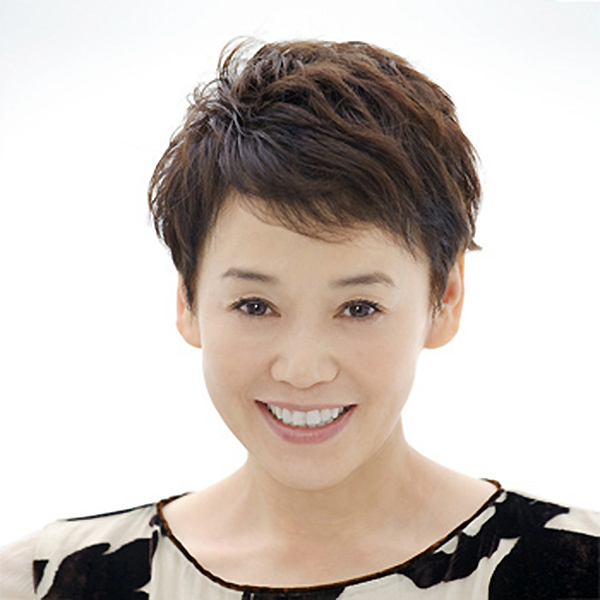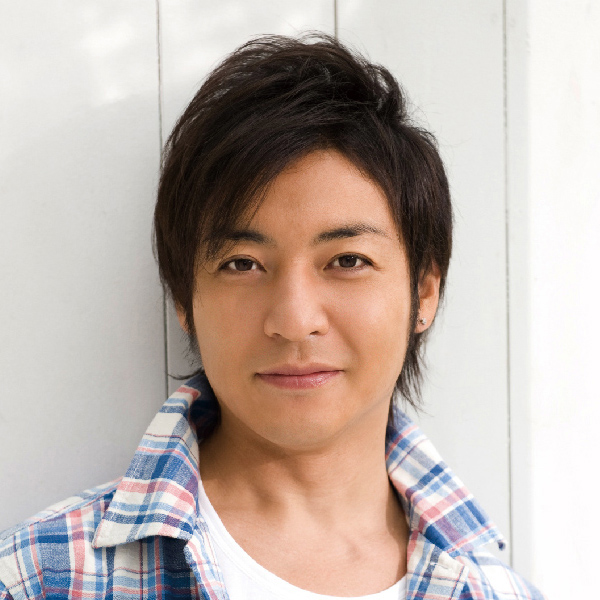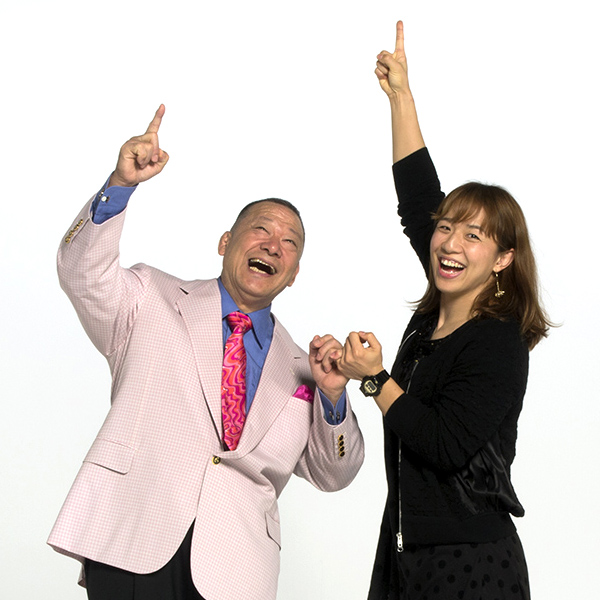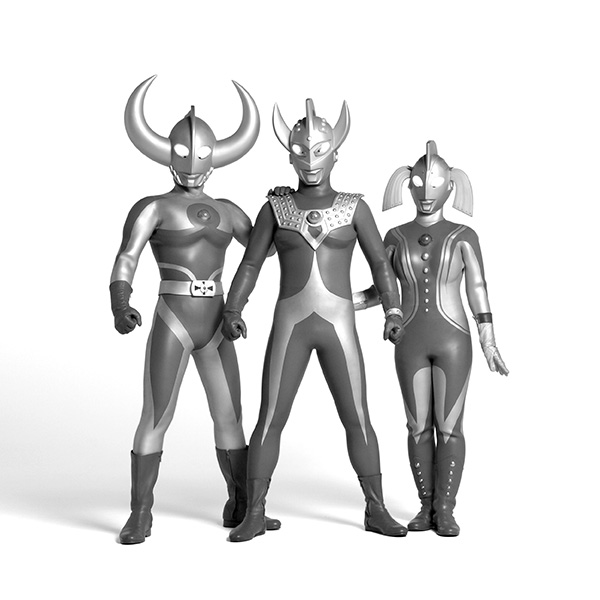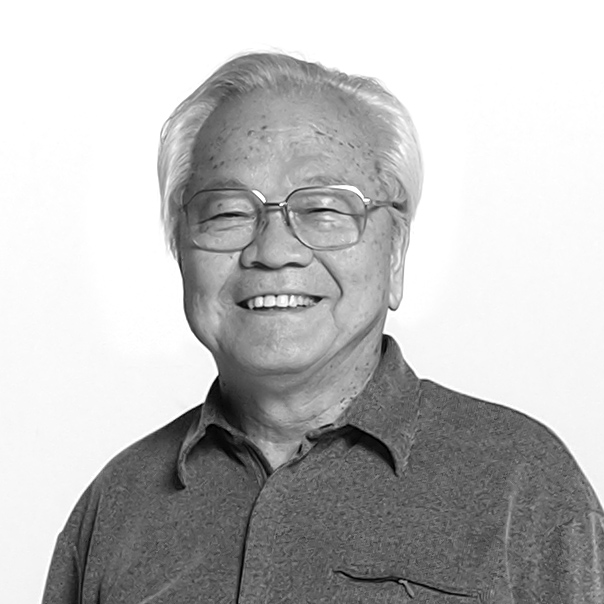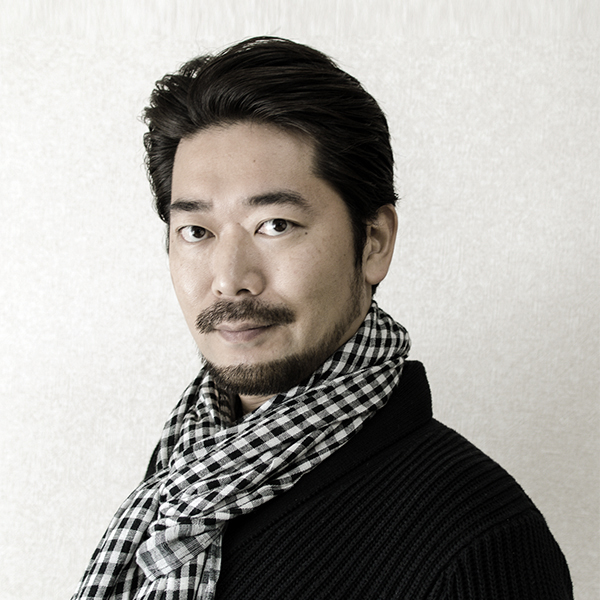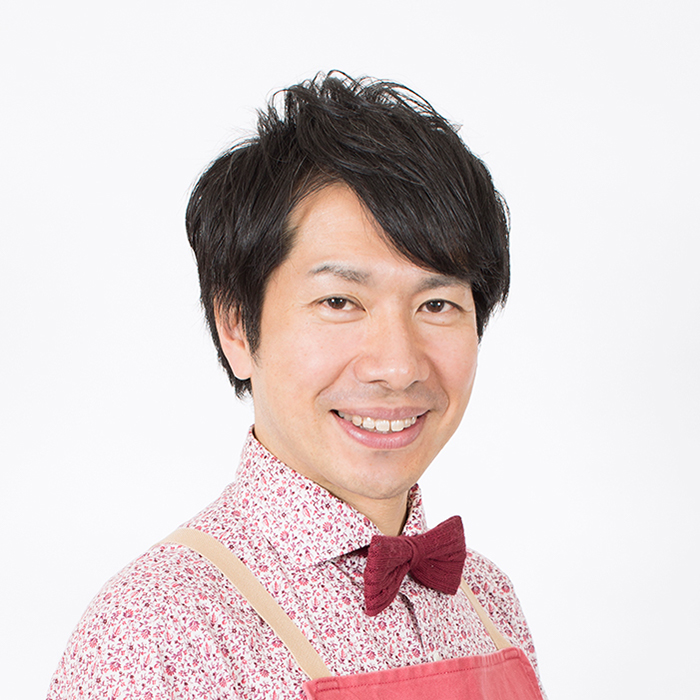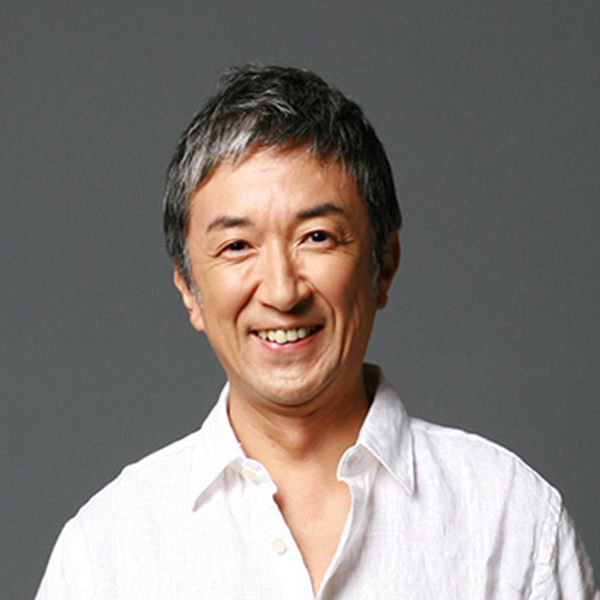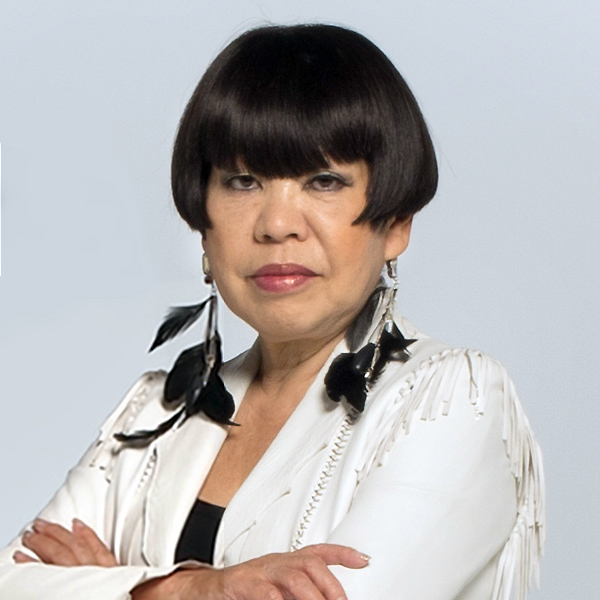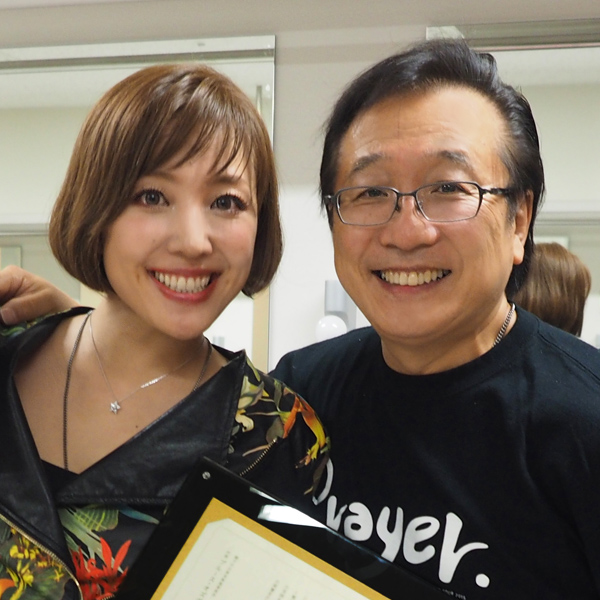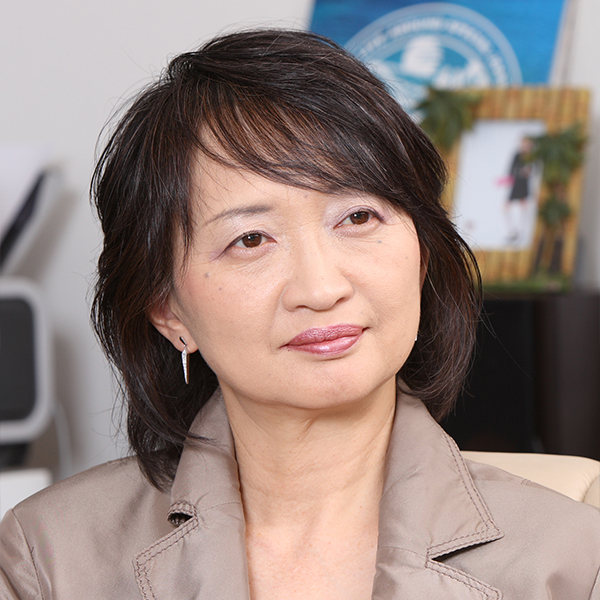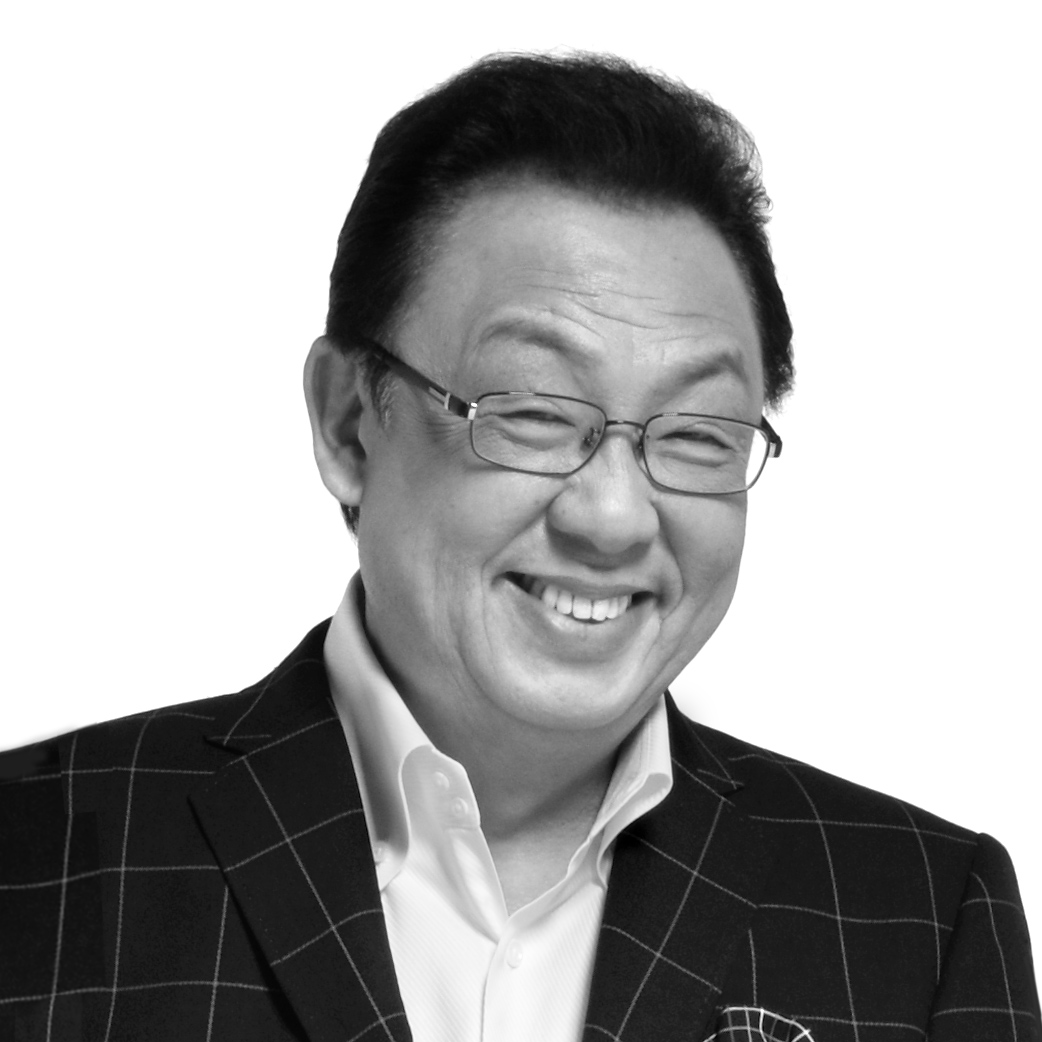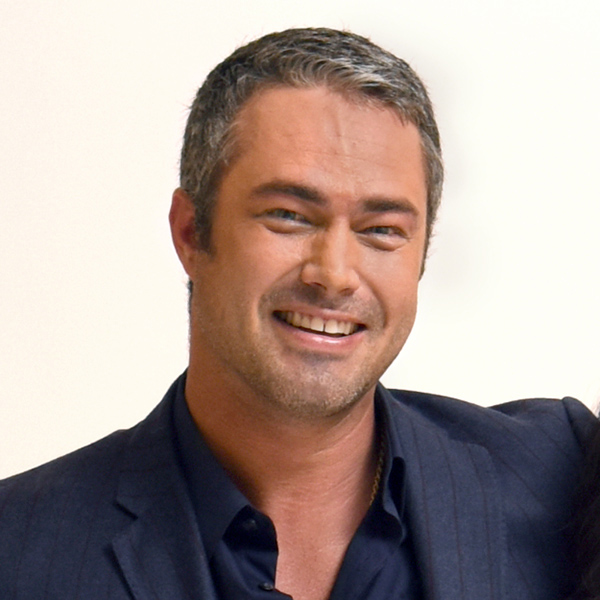Oyako Day Essay Contest 2019 Winners
Period:2019/5/16〜7/29
Grand Prize
Sennheiser’s MOMENTUM True Wireless premium earbuds
“Papa, you should take a picture….”
Rugged pink cherry blossoms. A dark blue ocean. Red and yellow leaves. Silver-white snow banks. No matter how beautiful a background I put behind me or how much I coaxed him, my father would just stand there with his single lens reflex hanging on his neck and scratch the side of his head.
“I’m a landscape photographer. I don’t do people.”
“I’m the only daughter you’ve got, but you still think the scenery is more important!!” I used to say. Ever since I was a little girl, his attitude upset me. By the time I became an adolescent I was sick of having to always whine for photos, even on family outings. And finally, as soon as I became an adult, there were no more family outings… That was a year ago.
That’s when I got married, left my father and mother and moved far from the home I’d known for thirty years. The night before leaving, my mother and I were having a heart to heart talk in the living room when my father stumbled in carrying, of all things, a collection of photo albums.
“Part of your trousseau. Be sure to take them with you !”
What was this? A bunch of albums handed over like tickets through a wicket. A way to bury his embarrassment? Still, curious, I glanced inside one of the albums. It was filled with pictures of me.
Me at Parent’s Day at kindergarten. Me, the first day of elementary school. Me at a middle school athletic meet running anchor for the relay race. Me on the victory stand at a high school tennis match. Me in formal wear for my college graduation. And then, my engagement day, Me in a long-sleeved kimono, standing with my mother admiring the cherry trees in the garden. And not one picture had the frozen look of a snapshot. It was really me: my natural, smiling self. Because my father had taken them, and he knew me.
“….I guess I inherited my difficult character from my Father.” After thirty years together, I was laughing and crying because I finally knew how much my Father cared.
“Thank you, Papa.”
OTICON Prize
Sennheiser HD 4.40 BT Headphone
Parents know more about their children than anybody. Honestly, I always thought that was a lie. Once I hit adolescence, I flat-out lied to them, resisted them in every way and even got rough with them. Day after day I screamed about how they didn’t understand a thing about me. In the end, I finished by thinking that there was only yourself to understand what was happening for you. Until one day something happened…
It was just last year, a good six years beyond adolescence. I was on a home-stay program in Canada, living each day in a place where both the language and customs were different, and of course, the host family was not my own. I wasn’t capable of expressing myself as I wanted to, so I had to bear up and tough it out. Under these conditions, the first two months seemed incredibly long to me. Then, just as my third month was beginning, a big package arrived at the house addressed to my name. I saw that it was from my family, far off and away in Japan. I rushed to open it and discovered it was full of gifts. From rice, seaweed & miso soup to dried & shredded squid, rice crackers, smoked chicken, cheese & udon. There were also anti-fever patches and throat lozenges, thick socks and a muffler to ward off colds. All the things you could find in typical Japanese stores. And finally, feeling at the very bottom of the box, my hand brushed against something else, a letter from my parents:
“Congratulations on your 21st birthday. Please do your best to look out for your health. And have a good time !” All the bad feelings I’d pent up for the last two months suddenly flooded out of me and I began to to sob. I hadn’t noticed when I opened the package but finally taking stock, I realized they’d sent me all my favorite things. All the food I’d always called delicious. Fat fluffy socks and cold medicine to save me from colds. Each item was wrapped in my parent’s care. That’s when I finally understood how closely parents watch their children as they grow up. And that’s why they knew me better than anybody else could.
When my Father was in kindergarten, the teacher asked the class to draw a fish. My Father drew a long fish barreling towards the viewer head on. It was one my Father’s favorite tales.
And I’ve heard that in lower school when they asked him what the opposite of “hot” was, he’d say “not hot,”and for “tall,” “not tall.” He stubbornly went on that way until my grandparents took him to the hospital to be sure he was all right. Of course, there was nothing wrong with him.
My father told that story at a relative’s memorial service, serenely and without the least hesitation. There are many ways of looking at things, so where’s the problem, he thought. It’s precisely because different people have different ways of seeing things that the world can change, he went on.
My father’s kind of a weirdo. As for me, I’m proud of him. He worked for a large, long-standing Real Estate Company but retired early and opened a home renovation business long before they trended. Even the term “venture business” didn’t exist back then, but without a doubt, that’s what he was up to.
Day in day out, all his efforts were in vain. “I’m too far ahead of my times, but people will catch up soon,” he got accustomed to saying. Soon enough, Asahi Television started their “Great Remodeling ! Dramatic before & after” program, and renovation became a big thing. Suddenly my father was being called all over the country. “What’d I tell you,” he’d say laughingly.
My father died during my second year of middle school. He had a heart attack. One of my father’s last gifts to me was a Vocation Dictionary. When he handed it to me he said, “How’s this? Go out and create a job that isn’t listed in here.” I resemble my Father in both my looks and character. “You’re his living image,” people say. I wondered what my Father had had in mind in giving me that dictionary.
When I was in high school it was my mother who fell ill. Complications after surgery left her paralyzed from the waist down. She lost her job, and along with that, her will to live. In a heartbeat, I found myself saying, “I’m going to make you my new vocation.” It was the part of my father living within me that had spoken out.
Four years later, I founded a company with one of my colleagues from work. Japan’s first and only “Barrier Free Consulting Firm”. Up till this day, I go around the country and abroad with my mother in her wheel chair. People have begun to say I’m just as odd as my Father was. And that’s the part I’m most proud of.
Our daughter’s started kindergarten. I was near 50 when she was born, so with 48 years between us, people probably take her for my granddaughter when the two of us go out for walks. I couldn’t make up my mind whether or not I should go to the kindergarten’s entrance ceremony. I mean, usually any parent with a son or daughter joining the class would go, right? But if I went, everyone was just going to think that I was some grandfather who was so taken with his grandchild that he just couldn’t keep himself away.
On top of that, for 20 years now, I’d been running a juku close to the kindergarten. Many of the parents who’d be at the entrance ceremony were likely to be my old students. That bunch was going to be really excited.
On the morning of the ceremony, when I was worrying over the gray in my hair, my daughter spoke up, “Forget about white hairs ! If anyone calls you my grandpa, I’ll let them know who you’re my Dad !”
“C’mon Daddy, let’s go” she said, pulling me along by the hand all the way to the ceremony. Once there, as predicted, everybody was young. I’d just about managed to seat myself unobtrusively in the back when I heard, “Professor Kurosawa, what in the world are you doing here?” I was quickly surrounded by a crowd of former students and beginning to feel embarrassed. But then, looking at all these familiar faces now grown up to be fine young parents, I finally broke into a smile: so it goes.
Next up is the Kindergarten Athletic Meet where I’m listed in the Parent’s Relay. I’ll be running against my former students. Maybe be I should start training for it now.
MAINICHI Prize
MOTTAINAI Goods
Whenever I noticed my father’s back it was large, and then, distant.
When I was little he used to carry me on that back. Now, some twenty years later, it’s all I can do to chase after it. My Father is so exacting with everyone around him that even I feel I’ve let him down. He discovered what he wanted to do at an early age and spared nothing to succeed. He retired after working for many years at the same company, and now, as a university professor, he struggles every day with his lessons and students.
I myself had never been any better than an average student, and there was never anything in particular I was interested in striving for. Moreover, I was so stubborn that I’d easily get sidelined by how people spoke to me or treated me. I failed to get into the school of my choice at both high school and college entrance exams. Without the college’s help in job scouting, I closed myself out of the seller’s market, so I had an equally difficult time fixing on my final employment. I’d been out in the world for about three years when my father began to invite me out drinking.
One such night just as I was wondering how long we’d been the only two people left in the bar, my father said, “The happiest thing in my life was meeting you. …And I’m really proud of you” My father seemed so out of character looking at me with moist eyes that I wondered if the sake had gone to his head. Next, he went on to review my whole life story bit by bit. How my oversensitivity to what people said and did brought me to the brink of quitting school, my time as a student who lacked direction and didn’t study, how my more shrewd friends seemed to be having it worse than I did, my parents getting me through college in the midst of poverty…
“You’re actually a lot like me. You’re a late bloomer, but you keep moving right along !” My father had noticed. I’d finally found something I wanted to do. And then, after a short silence he slapped my back, “I was a dropout myself, and I’m telling you it’ll turn out fine.”
Barely holding back our smiles, we raised our glasses to each other.
Walking in front of me, my father’s back was just as large as always. It didn’t seem like my tendency to self-abasement was getting any better. But, my father’s hand as he hugged my shoulders, was, in memory, the largest and warmest I had ever felt.
Watching birds fly back and forth bringing food to their chicks, I thought about how natural it is to care for them.
Human, animal, and vegetal, we instinctively feel the need to nurture, educate, and defend our offsprings.
At the time of her high school graduation, my eldest daughter announced she was leaving to do volunteer work overseas. She’s physically the smallest of our children, quite demure, and it wasn’t so long ago that she was hanging onto my skirt’s hem crying “Mama ! Mama !”
She was heading for a country that was only known for its most recent war, Georgia (we used to call it, “Gurujia”). Since the place was unknown to me, my worries increased to fill in the gap, right up to the point where I thought I was going to lose it. My daughter, on the other hand, didn’t so much as bat an eye. And then she was gone ! I started wailing right in the middle of the airport, and I didn’t care who was looking.
From that day on, my whole body resounded with questions of her survival: was my daughter eating?, was she cold?, was she sad?, over and over again. I counted the days and waited for her return, till finally she came home.
Flushed with eagerness, I was preparing all her favorite foods while stacking plans for even more meals. That’s when my daughter announced she had lined up a part time job in another foreign country, some 900 kilometers away. Torn between shock and disappointment, my head went white right down to the roots of my hair, and my mind brought back images from the past. Finally giving birth after a long and difficult delivery, all those visits to the hospital while she was young, her being late about speaking, all the different lessons chasing after undiscovered talents, sending her to a private girl’s school, days full of pick ups and send offs without number. It’s a tough game. The only thing that got me through it was being her mother, nothing more: because she is our child.
Which reminds me of something else.
Thirty years ago, at a time when I was changing jobs, I myself suddenly decided to leave Japan. I had always been someone who did what they wanted. At the time, my mother must have felt pretty much what I am feeling now. Some day, my daughter would know what I felt, and what my mother had felt before me. She’d taste that mix of bittersweet and brine just as I was. Only living things live this drama: the drive to preserve our seed on and on through time. Isn’t this what parents and children are all about?
Athletic Meets are a mix of heaven and hell.
Since the senior class Parents and Kids Race was about to start, the loudspeakers were asking the children’s guardian’s to get ready.
“Ok Mom, you’re up!” I reminded my wife.
“This time you go !” she fired back without taking her eyes off the on-going competition.
“What? What do you mean me?” I thought she was joking.
“Tae-chan’s mother, you’re turn to go” one of the other mother’s reminded my wife, who promptly answered, “This time her father’s going !”
“Are you serious? I can’t !!” I fired back, keeping the volume down so no one could overhear the squabble.
“This is the kindergarten’s last Athletic Meet, your last chance. So let’s get on with it…” This was feeling more like an order than a plea.
“Will Senior Class guardians please gather at the gate please” came another announcement.
I had polio when I was 2 years old and can’t walk without a brace. My participation in athletic meets was from the stands, not on the field.
There was a sudden blast of Csikós Post to mark the end of a race, and a crowd of young kid’s were running towards us. I spotted my daughter galloping in from the side.
“Daddy, hurry … It’s going to start !” she cried while pulling me by the hand. One of the teachers who had come along with her said, “You should come and join the race.” Acquaintances sitting nearby also encouraged me to participate. “C’mon Okutsu-san, give it a try !!”
I lowered my voice so my daughter couldn’t hear so as to better entreat the teacher, “You know, running isn’t really…”
“Daddy―we all get across the finish line together,” said my daughter giving my arm an extra yank. And so my first experience of competitive racing began.
Twelve parents and children were lined up. The object was not to run but to walk as a line towards the goal. Saying I couldn’t run as my daughter pulled me towards the starting line wasn’t going to get me out of anything.
We were in the last group to go. Her friends were calling their encouragement: “Let’s go for the finish line !” “Tae-chan, let’s go !”
“I want to go with my father !!”
Since I couldn’t let my daughter down, I got my first taste of athletic competition.
TSUTAYA Prize
Original Photo Book
“I never thought of you any other way but alive.”
These are the most powerful words in my life.
Eight years ago, it’s what my mother said to me when we fled the Tsunami during the Tōhoku earthquake. At the rescue shelter, I could see she was frightened out of her wits until we found my brother because he was set to come home at the worst time, and her head must have been full of tragic scenes. She blurted out at me, “I was absolutely sure you were alive.” Even if it was a lie, couldn’t she just tell me something about being worried about me? At the time, I was just an elementary school student and she really hurt my feelings. Now I understand. She was telling me how much she believed in me.
Now that I am 20 years old, there are some things I would like to give thanks for.
It’s something I realized when an American friend asked me if I knew Kenji Miyazawa. “Sure, I can recite him sometime if we get stuck waiting in a restaurant for our orders,” I boasted. My friend looked surprised and said that he’d never met anyone from Japan like me.
My parents tried to help me understand all kinds of emotions by reading to me every single evening until I started elementary school. As a result, I remember countless stories of people’s feelings. Now I’ve been in America for almost a half a year. I’ve learned to translate expressions that we only have in Japanese into another language. I’ve learned their fine, sometimes elusive differences. My ability to read emotions effortlessly is my greatest force. If I have this talent, it’s because my parent’s cared.
You never stopped reading to me.
You were always positive and backed up my choices.
Before I even started my life, you adopted the premise that I had a future, without the slightest doubt.
And finally, as I fell asleep under your warm blankets, the tone of your voices brought me through the night, changing the shades of my life.
Dear Parents,
Crybaby and troublemaker, ambitious to boot, I think I’ve been a handful. Nonetheless, you brought me up with a great deal of emotion, and now that I have gone out in the world, what will I become? If I love this life as I do, it is thanks to you. Thank you, thank you, thank you.
OQTA Prize
Dove Clock (Wi-Fi)
“It’s time to harvest the rice again.”
My mother’s voice, so familiar over the phone… So, it was harvest time again, I thought, and my heart swarmed with old memories.
When I was little, my major, summer event was the rice harvest. Each year, the whole family, including my Mother, Father, Younger sister and myself, went out to the fields. My father would make rice-drying equipment from bamboo. Mother and Father would set the harvested rice to dry. My sister’s and my job was to pass the bundles of rice to our parents. With all the stooping and standing, over and over again, our backs were soon aching, but when I said as much to my mother, she would always reply, “You’re young, you can stand it,” laughing away my complaints.
When we took our lunch break, the whole family sat on one of the paths separating the rice fields, and we ate lunch boxes Mom had prepared at the house. Maybe it was because we were outside, but my mother’s country-style, jumbo nigiri never tasted so good. I can remember their taste even now. Dad would reach down into the brook that flowed by the edge of our field and pull out the watermelon he’d put there to chill in the early morning, now ice-cold. Such a delicious, wonderful meal.
Then we’d go back to the harvest. After the rice dried, there was the gleaning: we’d spread out and go through the fields looking for fallen grains of rice. At the time, I didn’t think gleaning was worth it, but mother and father would always say, “However little, we don’t want it to go to waste,” and this is exactly how I think of my parents now.
I left home once I finished high school, but every year since, my parent’s rice comes to me by mail. Already, as early as middle school, I got so busy that I couldn’t help with the harvests. When I think that they now go on making rice every year without me, I regret that I didn’t help them more when I had the chance.
Wiping away the sweat that was rolling off me, I would pass the bundles of rice on to my parents. No matter how the sun belted down, the river always chilled my hands when I plunged them its waters. My sister, running around the field chasing after dragon flies. The four of us watching the sunset. These are the family memories I hold dearest.
This year I am going home, home to help with the harvest.
TSUBURAYA PRO Prize
Ultraman Limited Edition Blu-ray Set
Baby-talk is a language.
In baby-talk, cars are Pu-Pu-, food is Manma―sounds babies use for the correct words they can’t yet say. One word my son uses a lot is Nen-ne. Usually it means “to sleep”, but our son uses it more broadly. For example, should he stumble and knock into something, he might squeal “Nen-ne” when he cries. Or, if he should take ill and have a fever, we often hear “Nen-ne” come out. So, after all, “Nen-ne” is not so much “sleepy” as “It hurts” or “I don’t feel good.”
I guess it’s obvious, but this particular shade of meaning is for the parents only. Strangers won’t hear more than “sleepy”. When we went to the hospital because he was badly constipated, he yelled “Nen-ne!!” when the doctor pressed down on his lower abdomen. But neither the doctor nor nurse seemed to understand: they just tilted their heads and looked puzzled.
A year or two after that, when he was old enough to go to kindergarten and spend the whole day with other children, the flow of baby-talk ran to a trickle. It was we, the parents, who couldn’t give it up. We went on saying “An-yo”, and he’d bark back “That’s FOOT!”
We’re all happy to see our children grow up, but you can’t help but regret how cute a baby can be. Recently, my wife has been making a glossary of the baby words our son used. “Wanwan” is “dog.” “Bu-chan” is “water.” She notes them down as she remembers them. From the beginning I found this a bit odd for a project, but I can’t help but admire my wife’s motives in starting it.
The other day, we were visiting my parents, and my wife found something interesting in one of my early photo albums. She even brought the album back to our house with us. The last page of the album was covered in writing under the title “Ka-Chan words.” I was wide-eyed when my wife showed it to me. “Ka-Chan” was my nickname when I was little. So, my mother and my wife were up to exactly the same thing! When I started going through the list I was in for a bigger shock. Right in the middle of it I found, clearly printed, “Nen-ne : ouch ! It hurts.”
OYAKO DAY Prize
Oyako Day 2019 Original Present
As far back as kindergarten, I’ve been bad at sports.
I wasn’t like most kids who went out to play, I preferred staying at home with a picture book. What I hated more than anything were Athletic Meets.
And at those meets, what I disliked the most were races. The kindergarten grounds were small, and races were run across just half of it. Even so, I could never make it to the end and always had to stop along the way. When I was finally at the point of tears, my teacher would come drag me by the hand across the finish line.
With such experiences as these, I became incapable of running. In elementary school, things were no better. I continued to be terrible at sports. In autumn, the Athletic Meet season, I would fall into depression: there was no hiding how bad I was at running foot races. I simply had no idea where to start to get better about running. One year, before the meet season, my father came and said he’d teach me how to run. My father had been a top competitor at short distance running for his athletic club when he was a student. I’m sure it troubled him that his own son couldn’t even compete in a simple Athletic Meet. So I went into special training with my father.
Every morning before school I’d go to the park to learn about running. My father’s basic approach was “Spartan Ardor”, but he also concentrated on things like starts and how to work the curves. Those things were worked intensively. I struggled desperately to come up to my Father’s expectations. Then, it was the day of the Athletic Meet we’d worked so hard for, and soon enough, time for my event.
BANG !! At the sound of the gun all of us dashed forward. I took off, frantically waving my hands in broad strokes. I came in fourth out of six. My first reaction was to be disappointed, but at lunchtime my father came by to say that I’d done really well and congratulated me with a broad smile. I remember having a feeling of deep relief in my chest.
Time has passed since then, and now my father can’t walk without a cane.
I gently hold has hand when we walk together. Being careful not to fall, we walk slowly, one foot after the other.
23 years ago, I went to a farewell party after my elementary school graduation ceremony. Farewell parties tend to follow a set pattern, and ours wasn’t any different: after a meal and a speech, each of us would say a few words for the occasion. I was moving to a different prefecture, so I was asked to make the last address. I was overly shy, inconspicuous and provincial. Making the final speech was to be my first important role.
Our farewell party was the continuation of a highly emotional graduation ceremony: a tempest of sentiment. People kept saying things like “I’ll never forget you for the rest of my life” and other statements you’re unlikely to hear everyday as the series of melodramatic soliloquies wound on.
Finally it was my turn. I was really nervous: no room for sentiment here. The whole room fell silent. It was time for the climax. As soon as I stood up, I broke out into a cold sweat. I couldn’t move my mouth. In the silent dinner hall, there was only the echo of girls sniffling. My first important role. I was trying to focus my eyes on something. Just when I felt like running away, I heard a loud voice to my side.
“Hello Everyone !!”
When I looked over, I saw my Father holding a microphone.
With everyone screwing up their faces and thinking, “Who’s this guy !?” my Father called out in English, “Thank You !”
His pronunciation had been peculiarly good. Looking very stylish while brandishing his arms in the air, he resembled an old-time Rock Star. Grabbing me, now beet-red, around the shoulders, he cried out a final “Thank You.” Really, exactly like a post-concert singer with his fans.
I was hearing people talking and laughing happily. I was watching my Father, who seemed terribly embarrassed, and yet remained untroubled all the while. He just kept saying, “Thank you, thank you…” He’d repeated it so many time that it had blown away the air of sentimentality and left everyone laughing.
Some 23 years later, I found myself at another farewell party. But this time I was there to keep an eye on my own child. And I finally understood what my Father was doing that day.
Dear Father, Thank you.
My mother is always saying “just a bit.” “Just wait a bit.” …or “Come home just a bit more.” And I really hate that “just a bit”. It makes me feel like a child, so how long is that going to continue?
That’s what I say, but at the age of twenty, I woke up to find myself pregnant. My mother’s face screwed up in a scowl. “You’ve been just a bit quick …usually, the order of things is just a bit different.” She really hurt my feelings. And since she hurt my feelings, I had my child in secret. Even without a mother, I can become one myself. That’s what I thought.
But giving birth is just the beginning. I didn’t know the first thing about bringing up a child and felt as though I’d wandered into a tunnel with no exit. The father’s company had sent him to a far-off province, and we saw each other once a month. Out of the blue, after a half year like this, I found myself crying at night. Every night. I couldn’t sleep and stopped eating. I began to feel that all these tears were the mark of the kind of mother I’d turned out to be.
“You’re just a bit young to be having a child.”
Suddenly my mother’s words came back to me. I began to hate myself. I wanted to die. But once pushed to the extreme, I longed to hear my mother’s voice. I tapped her number into the phone with trembling fingers, and the moment I heard her voice, I burst out crying. “Wait just a bit, are you all right?” “Hold on just a bit, are you eating?” True to form, she was being the same pain she’d always been.
But she came to see me immediately. Her hair was a mess and her face full of wrinkles: I was so relieved to see her. I must have cried for hours. My mother quieted us down: me, who had cried like a child, and my child as well. The first I knew I had fallen asleep, and my mother was no longer there. When I opened the refrigerator, there was a note saying “reheat and eat!” The paper the note was written on was well chilled, but my mother’s words full of warmth.
She’d made her very own beef stew for me. It’d been so long since I’d tasted it: just a bit too much sugar, the potatoes a bit too large. I could feel that bit of love down to the ends of my toes. While I was eating I couldn’t help but think of my Mother. I thought of her diligently cooking up an order of beef stew and then leaving my place without a sound. I could imagine her figure going off into the night and wanted to wish her well. Closing my eyes, I whispered, “Mama, it’s so good. You’ve made just a bit too much though.”
My Father was never any good at cooking. If he made stew, he’d be sure to scorch the bottom of the pot. His Miso soup was always bitter. Nonetheless, his fried noodles were the best in my book. Around the time I thought I was never going to amount to anything, it was his fried noodles that helped me the most. I’d graduated from university and was in my first year of employment when I had to stop due to depression. I could hardly eat and rarely left my room.
My mother was sometimes effective in getting control of me, but my Father tried to operate at a distance, which was not really possible. Since my Father had changed jobs relentlessly from a young age, I think he hoped I would work for a single company throughout my work career, and his desire became a block between us. I knew what his hopes were, but I couldn’t fulfill them. Instead, I began to avoid my Father. But one day when I walked into the kitchen at noon, I found my Father there. I just went over to the farthest seat available, out of his sight, and sat down to wait till he left.
“How ’bout some fried noodles, would you like some?”
This sudden question came out of nowhere, troubling me so much I could barely speak.
“Sure…”
I don’t know how long I’d made him wait for that answer, but once he heard it, he went on to fry his noodles without another word. I wasn’t expecting anything special, just your ordinary batch of Yaki-soba. So I sat and waited.
“Here you go!”
And with those words, he served my noodles. With the first bite, I thought I would cry. It’d been a long time since I’d been eating and drinking normally, but I knew what I was eating was thoroughly delicious.
I don’t think we said anything. But somehow, I felt that my Father had accepted me. That, maybe I hadn’t strayed so far, and even if I had, I was still his daughter. He never told me what he was really thinking that day. Nonetheless, years later, now that I’ve left home and gone on with my life, my favorite dish is my Father’s blundering fried noodles.
Thank you.
It’s just two syllables but there was a time when I couldn’t get them out.
The day of my High School Graduation Ceremony, our teacher said to us,
“This is a special day. Please try to express your thanks to your parents for all they have done to bring you to this day. Say “Thank You,” because if you don’t do it now, you may not get another chance until you get married, or maybe even never.”
At the time, I thought he was overstating his case. But I couldn’t remember when it was I’d last said “Thank You” to my mother. Sometime when she handed me my lunchbox? When she ironed my school clothes? When she was ferrying me to and from school? No, none of those times.
“Momma….”
When I tried to say thanks, I would call my mother but then just playfully hug her. A long time a go, I was a spoilt child, used to getting a lot of hugs, to feeling close and burrowing in my mother’s smell and warmth. Still, that’s not quite thanking somebody. In a voice so small my mother could barely hear,
“But Momma, was I really once that small”
There was no way I could have said “Thank you” then.
I just thought that the Mother who was always at my side would naturally be there forever. But then, that’s not what happened. Before I even knew it, time had gone by and I was taller than my mother. The time we had together was gone in the blink of an eye. What time did I have to thank her in that brief instant, …I don’t know.
On Mother’s Day, I was hiding her present behind my back as I approached her. The salesman had given me a gift card with the carnations. I’d written in foolish pictographs on it to better hide my embarrassment. But I didn’t write “Thank You.” So I must have said it when I handed her the present. “Mamma, thank you for everything,” that’s all I needed to say. Or maybe I’d just murmured it to myself when I passed her the present. No, I just couldn’t say it. I handed over her present with a straight face and nary a word. My mother laughed. “Thank you” she said.
And I just scrunched up my face and muttered, “Please, that’s my line.”
Our son was murmuring over the phone.
“I’m getting married …I’ll come with my fiancé”
They were going to visit us on the Tanabata Festival Day.
That’s something we should be thrilled about, right?
There are many stories about Orihime crossing the Milky Way, and this year our family was going to add it’s own chapter. The damsel about to cross the bridge built ‘cross the heavens would become a companion for life, an opening scene to a new pageant. Would she really make it across the bridge? What kind of woman was she? Especially with that son of ours… So much to think about.
As a couple, my wife and I were filled with expectation.
My wife pondered daily how to receive such auspicious visitors while the mother in her dwelled in the moment, leaving a trail of contentment behind her. This old man, with only a few days till Tanabata, couldn’t do anything more than count the remaining days on his fingers day and night, a deplorable state to be in.
And finally the day arrived.
The first Tanabata Festival of the new, Reiwa Era; it was Summer, yet it felt more more like Spring, the beginning of new things. All these reverberations from the word “Marriage.”
It had been 23 years since my eldest son had married, and now his brother, three years his younger, was arriving with his own wife to be.
This was the only day the magpies could work on their bridge across the sparkling heaven.
My wife and daughter-in-law-to-be were having a lively conversation.
I could feel how much my wife wished to put her at ease, her desire that this young woman see her as the new parent she was hoping for. My wife asked our son to take a picture of the two of them together. As he was readying his smartphone he let slip, “Well, Mom, now you’ve got a new daughter, don’t you?”
The way they seemed to sparkle in the photo must just be my own sensory illusion, but I could feel the pleasure of the young bride, that coupled with our own happiness opened our children’s heart’s to a mother’s love. Lifting my eyes to the Milky Way, to the bridge held by the magpies, I wondered if I should send them an urgent dispatch reporting the wonderful passage this picture had led me to understand.
:::::::::::::::::
* Tanabata <https://en.wikipedia.org/wiki/Tanabata> is a Japanese festival that celebrates the meeting of the deities Orihime and Hikoboshi. According to legend, the Milky Way separates these lovers, and they are allowed to meet only once a year on the seventh day of the seventh month. The first time they tried to meet, however, they could not cross the river. Orihime cried so much that a flock of magpies came and promised to make a bridge with their wings so that she could cross.
“Well now, that was worth it, wasn’t it?” was my mother’s stock phrase.
My mother always noticed when I did something for somebody and praised me for it. In fact, she led me to believe that it was a good thing to help others. So, it’s because of my mother that I like to help those in need.
My mother taught me when you can do something but can just as easily not do it, that’s when you have to act! And since my mother’s a bit of a pain, I ended up doing a lot things that I might just as easily not have done. Looking back, these were the very things that became my most formative experiences.
Take for example our condominium’s events.
I was one of the older children living in our condominium. Since all my friends in the condo said they weren’t going, I’d decided not to participate. Furthermore, since it was an open event, I didn’t really need to think about it. But my mother insisted I go along with her. I stubbornly refused right up till the end, then finally went anyway.
Since my mother was a member of the committee managing the event, I ended up helping with the organization. Though I’d decided it would all be a big bore, I actually enjoyed myself. The time I spent talking with the people who came as well as with the committee members I’d worked with was particularly fulfilling. Part way through, some of my friends also showed up, and we all had a good time together. I was so glad I came.
Just as My mother always said, “You really need to do the very things you feel ambivalent about.” I’d tasted it’s truth through firsthand experience. From now on, I’ll be trying a lot more things that I might just as easily miss, because now I see they’re precisely the ones you don’t want to miss.
Joining this essay contest was another of my Mother’s ideas.
And I’m sure she’ll say it again, “Well now, that was worth it, wasn’t it”
“Ok, OK, I’m coming…”
My mother is not talking to me, my dad, or even to our pet, or to put it straight: she is not addressing any human or animal. For more than ten years, she’s been answering the kitchen appliances and our microwave oven.
When the microwave, the stove or the kettle goes beep, my mother talks back. “Just wait a second,” she’ll say to the appliance, that or any number of stock phrases. When I was younger, I used to hate seeing my mother like this. She’d do it with my friends there or even when I came home in a fluster over school. Whatever, she was always had a word for her appliances. Even when I got to be a rebellious adolescent, and my ire over it tripled.
Nonetheless, I got through adolescence, and in becoming adult, I began to find my mother and her conversations with her appliances touching, if not just plain cute. Maybe this was a way to get more enjoyment out of cooking daily? Or it was not: what did I know?
Last year I got engaged and finally left home. As a new homemaker, I was forced to think about kitchen appliances, and of course, I felt a natural affinity for the ones equipped with a smart speaker system. There were so many of them… Maybe my Mother would heartily approve such purchases, but it came to me that subconsciously I was somehow drifting back home rather than breaking free to a new life. Maybe I was even thinking “How can I be a Mother if I don’t talk to my appliances.” I chuckled, “After all, that’s what others do, chat with their frig and stuff.”
In the end, my husband and I skipped the smart speakers and just got basic models.

